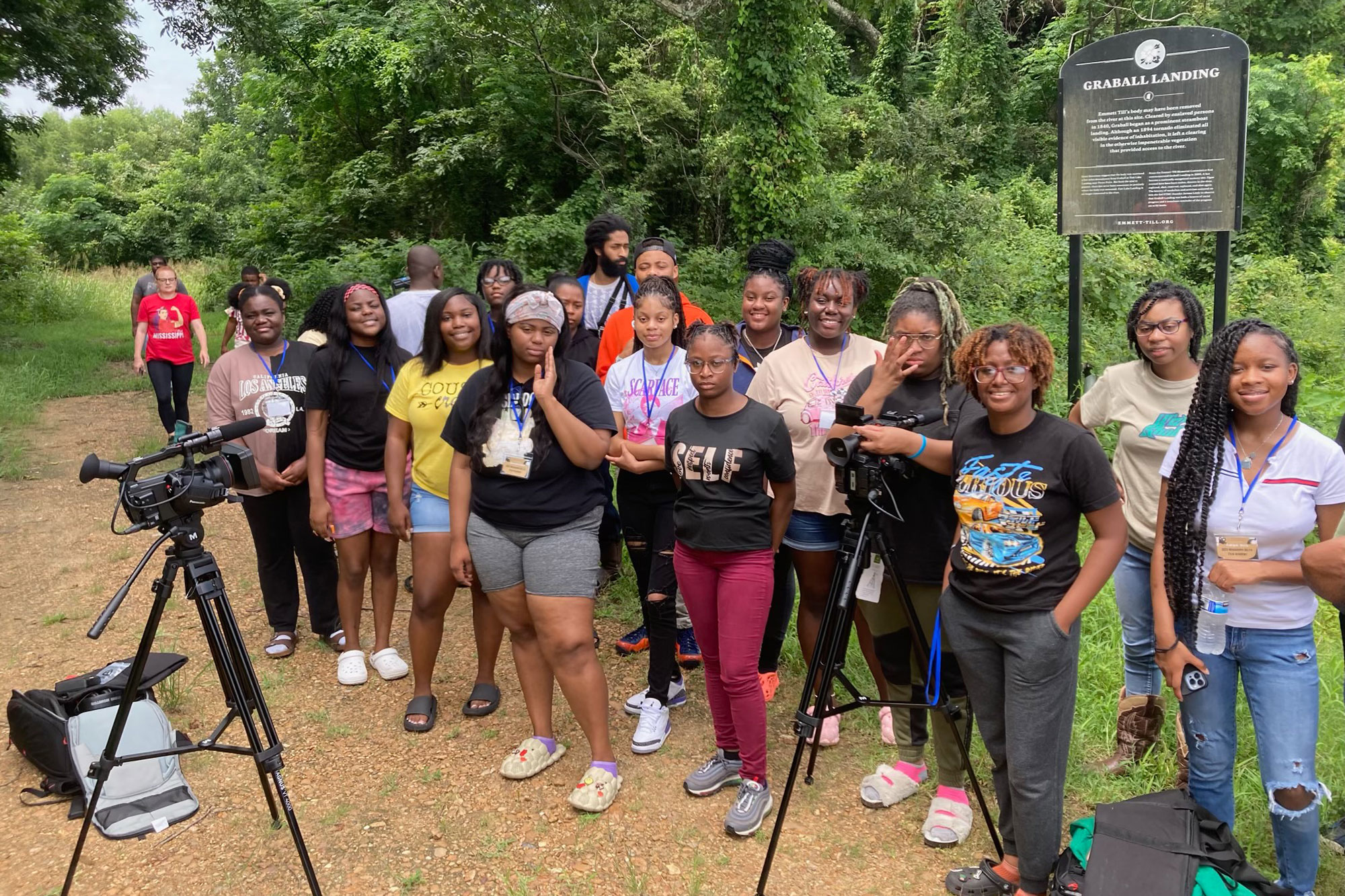A 10th-grade Jay Rushing stood in front of the Fannie Lou Hamer statue in Ruleville, Miss., alongside other students participating in the William Winter Institute for Racial Reconciliation’s inaugural class of its summer youth program in 2010. The center arranged the field trip so that the students could learn more about civil-rights activists from the Mississippi Delta like Hamer and that year’s primary subject of study, Amzie Moore, a Greenwood, Miss., native who spent most of his formative years in Cleveland, Miss., and later played a prominent role in Mississippi’s voter-registration campaign.
Despite having been born in the same hometown as Moore, Rushing never learned much about either Moore or Hamer in his school classrooms. All of the new information he was absorbing at the institute sparked an interest in the high-school sophomore to examine the role history plays in the development of communities.
“I went to Mississippi Valley (State University). I graduated with a history degree, and I came to the (Emmett Till) Interpretive Center to work on a curriculum project,” Rushing told the Mississippi Free Press. “We worked with a group of young people in the state to develop an Emmett Till curriculum.”
Now, Rushing serves as the youth coordinator over the Emmett Till Interpretive Center Delta Film Academy program that the center has been hosting since 2021. The two-week academy teaches high-school students from the Delta area how to shoot, produce and edit a documentary film while also learning about Emmett Till, the Civil Rights Movement and local figures. The academy, which will take place this year from June 17 to June 28, will offer free meals and money stipends to students.
“From my experience, as a young person who was inspired through the work at a young age, I know showing young people the role that they play in movements is always the most inspiring way to get them active,” the coordinator said.

Rushing said the film academy’s goal is to tap into those content-creation skills young people have and harness it into their ability to tell stories of their community. The academy provides students with camera equipment, and instructors Dr. Davis Houck and Dr. Pablo Correa will teach students hands-on lessons centered around filmmaking.
“They’re the arbiters of their own narrative now,” Rushing said. “We understand that if there were not people who were not afraid to tell the truth or put truth to power … then we would not know the truth today.”
Every year, the academy selects a new topic or theme for students to research and to create a documentary encapsulating that idea. 2021’s film, “Army Rising Up,” focuses on Fannie Lou Hamer and had a screening at the 2023 Oxford Film Festival.
Academy organizers are still finalizing the 2024 iteration’s theme, but this year’s student film has a goal of focusing on President Joe Biden’s designation of the Emmett and Mamie Till Mobley National Monument as a national park site on July 25, 2023, Till’s birthday.
This year’s program can take 22 students from the Delta region, and the application deadline for the academy is Friday, May 10. During the program, students will develop their teamwork and interviewing skills while learning the histories of their communities.
“I had a student tell me that they were awakened to the history within their own community through the program—(that) it not only focused on the filmmaking, but it also focused on the history of their communities and the history of how it’s connected to the movement,” Rushing said.

High-school student Myeisha Wright has attended the film academy twice and is now using her skills to create content for the Mound Bayou Museum of African American Culture and History. In an Emmett Till Interpretive Center newsletter, she gave the academy credit for paving the way to her “own self discovery of talent and communication.”
“The academy helped me find a voice and unlock a part of me that I never knew was there,” she wrote. “As a small town girl, it made me voice my big opinions about racial topics and historical figures.”
Rushing described his work as fulfilling and said he understands that his role as youth coordinator is to provide participating students with the resources and initiatives needed for them to come to their own conclusions. Investing in them is something he feels obligated to do because someone did it for him in ways that paid off.
“I feel confident that through our programming that we can equip those young people and that we can begin to birth the next generation of leaders and storytellers,” Rushing said.
A youth showcase will screen the students’ work on June 29, the day after the two-week program ends. In the future, the youth coordinator hopes to expand the program to other school districts across Mississippi and to create a film festival for the program.
To learn more about the Emmett Till Interpretive Center, visit emmett-till.org. Those interested in the Delta Film Academy should apply before the May 10 deadline. The Delta Film Academy will run from June 17 to June 28, 2024, with free meals and a money stipend.






